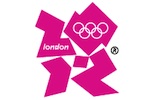Ofcom expects huge wireless demand during Olympics
 UK broadcast regulator, Ofcom, expects wireless demand to require 20,000 frequencies to be assigned over the seven week course of the Olympics and Paralympics – more than double the amount usually assigned in a year.
UK broadcast regulator, Ofcom, expects wireless demand to require 20,000 frequencies to be assigned over the seven week course of the Olympics and Paralympics – more than double the amount usually assigned in a year.
“Demand will be fuelled by the increasing use of wireless technologies by broadcasters, such as wireless cameras and wireless microphones, which will deliver dramatic and close-up action coverage to the estimated global audience of over 4 billion viewers,” says the regulator. “The extensive use of walkie-talkies by the organisers, talkback systems for broadcasters, timing and scoring systems and sports commentary systems for the audience, will also be essential for the organisation of the Games.”
Ofcom expects that demand will come from the following sources:
- Increased use of wireless cameras to achieve more dramatic and close-up action shots
- More wireless microphones to add flexibility in capturing the sounds of the Games
- Wireless location, timing and scoring technology to give more detailed and immediate information about the event as it happens
- Wireless communications used by team members, sports officials, organisers and support staff
- Sports commentaries distributed wirelessly to the venue audience for the benefit of hearing and visually impaired spectators
- The use of wireless communications by security and emergency staff to keep everyone at the event safe
However, as it points, spectrum within London is already being used at full capacity for many applications that will be used at the London 2012 Games. And this has been a headache for the regulator ever since London won the bid – not least because the Government-backed Olympic bid had guaranteed that all spectrum requirements would be met in full and that none of it would cost the end users anything.
To meet the extra demands of broadcasters, media and the London 2012 Organising Committee (LOCOG) during Games time, Ofcom has developed over the intervening years a plan to secure additional capacity. This will be achieved in four main ways:
- By borrowing spectrum on a short-term basis from public sector bodies, such as the Ministry of Defence, the Civil Aviation Authority etc (with certain constraints, and mainly relating to wireless camera frequencies)
- Ensuring that civil spectrum is used efficiently by making unused frequencies available. An example of this is spectrum that will shortly be auctioned by Ofcom, but is currently not being used
- Making use of spectrum freed up by the digital switchover
- Using spectrum that is available without the need for a licence
In preparation for the increased demand for spectrum during the Games, Ofcom has been running a series of test events during 2011 and 2012. These have taken place at high profile events such as the royal wedding of Prince William and Catherine Middleton at Westminster Abbey, the Formula 1 Grand Prix at Silverstone and the Sail for Gold event at Weymouth. Ofcom will also be responsible for managing the airwaves during the Queen’s Diamond Jubilee, which will take place between 2-5 June 2012.
Because there is only a limited supply of spectrum, it is important that it is both efficiently used and carefully allocated to ensure that interference is minimised. To make sure this happens, Ofcom has built a state-of-the-art spectrum assignment system that will carefully manage access to spectrum, keeping it both free for those who need it and free of interference. In addition, a modern sensor network has also been built across the country to identify any interference issues before they arise. And Ofcom will be deploying an especially large team of radio engineers to track down and deal with any cases of interference that do occur. Ofcom is supplementing its field engineering team with expert colleagues from other European countries.
This is handy, as some of the areas that have caused concern – the 2.6GHz band, the 863MHz – 865MHz spectrum – relate to Air Traffic Control radar and microphones used on the London Underground respectively, with the latter eventually being withdrawn entirely from the plans and the 2.6GHz band having to operate under strict controls for airborne operation.
Ofcom’s Chief Operating Officer, Jill Ainscough, said: “The UK’s airwaves are already among the most intensively used in the world. The London 2012 Games will significantly increase demand. Ready and prepared for this challenge, Ofcom recognises that there is no room for complacency. We are working behind the scenes to make this capacity available, to ensure that this demand is met.”
More info at Ofcom itself and in Richard Dean’s excellent analysis for TVBEurope at Race is on for London 2012.
